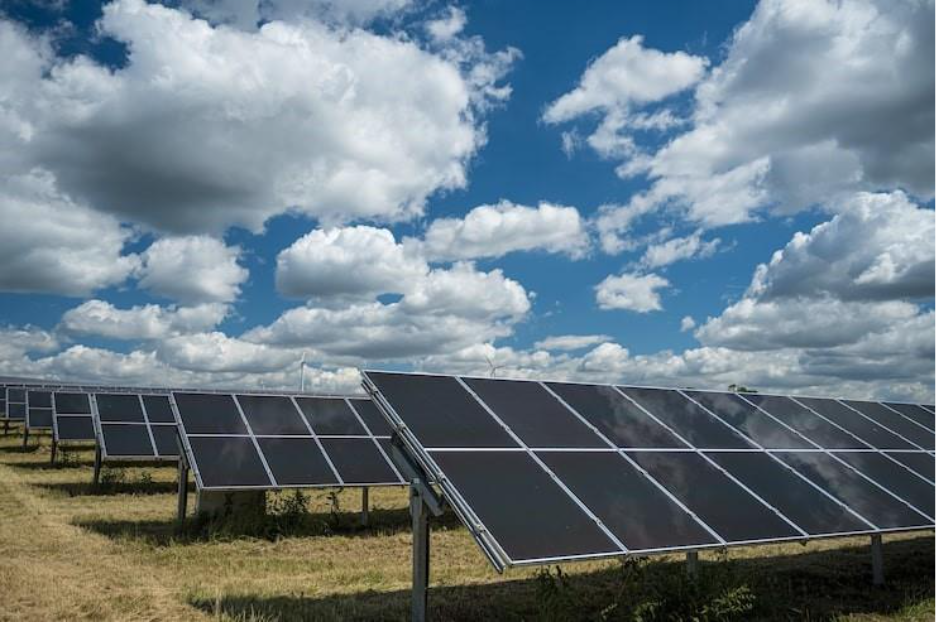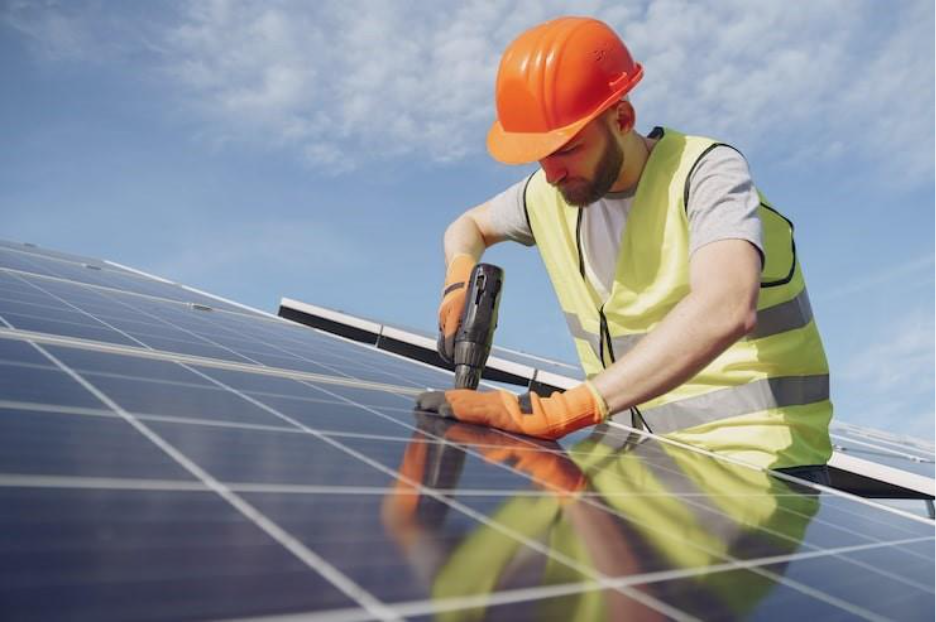
The renewable energy boom has entered its most aggressive growth phase yet. In 2025, global investment in solar infrastructure is projected to exceed $500 billion, with developers, institutional funds, and private equity firms racing to capture green returns. But rapid expansion brings mounting exposure. Fake solar developers, unverified investors, and misrepresented project data are fueling a wave of cross-border fraud, threatening billions in clean-energy assets.
In this environment, solar project due diligence isn’t just a risk-mitigation measure—it’s a business survival tool. Investors must verify every stakeholder, contractor, and financing source before deploying capital. Failing to do so can lead to regulatory fines, reputational loss, and ESG disqualification.
BusinessScreen.com is a global leader in background screening, corporate intelligence, and compliance monitoring for the energy sector. Its due diligence platform helps solar developers, banks, and infrastructure funds verify partners, trace beneficial ownership, and confirm ESG integrity with precision. For those new to the concept, the fundamentals are explained in What Is a Due Diligence Background Check and Why Do One.
Solar energy has become the centerpiece of global decarbonization. According to the International Energy Agency (IEA), solar PV will account for nearly 80% of new renewable capacity between 2025 and 2030. Yet, as capital floods in, fraud schemes have multiplied.
In the United States alone, more than $14 billion in clean-energy projects were delayed or canceled in 2024 due to investor misrepresentation and forged documentation. Across Europe and Asia, false claims of production capacity and fraudulent EPC (engineering, procurement, and construction) contracts have caused massive write-offs.
Due diligence failures often stem from rushed funding cycles or overreliance on internal vetting. Without independent validation of counterparties, projects risk insolvency, compliance breaches, or ESG blacklisting.
Thorough due diligence ensures:
Solar projects have complex ownership webs that span jurisdictions. Vetting each entity through BusinessScreen.com’s Business Partner Due Diligence platform reveals hidden risks long before contracts or funding close.

Effective solar project due diligence merges financial, legal, operational, and ESG verification. When screening developers, investors, or acquisition targets, compliance teams should address:
1. Corporate structure and ownership transparency
Confirm the legitimacy of all entities involved. Verify incorporation records and identify ultimate beneficial owners (UBOs). Many fraud cases begin with shell companies registered through offshore proxies. Tools like BusinessScreen.com’s Business Verification map ownership hierarchies and expose nominee arrangements.
2. Legal and regulatory compliance
Check all environmental permits, construction licenses, land-use approvals, and grid-connection rights. Missing or falsified documentation is a primary cause of project failure. The Complete Guide: Corporate Investigations outlines how investigative research can uncover falsified permits or litigation risks.
3. Financial solvency and liabilities
Analyze the financial health of each participant through credit histories, bankruptcy filings, and lien searches. The Property Lien Search Guide shows how to uncover encumbrances or outstanding tax obligations that may hinder project financing.
4. Reputation and litigation checks
Conduct civil and criminal background investigations on executives and related entities. BusinessScreen.com’s Company Background Check integrates litigation databases, adverse media screening, and sanctions lists to reveal hidden misconduct.
5. ESG and sustainability verification
Evaluate compliance with the OECD Due Diligence Guidelines, UN PRI, and IFC Performance Standards. Projects with labor or environmental violations risk losing institutional investors and eligibility for green financing.
6. Vendor reliability
Assess EPC contractors, equipment suppliers, and O&M vendors. Use Vendor Due Diligence to confirm technical competence, safety records, and contractual performance.
Each layer builds a 360-degree risk picture. Together, they define whether a solar project meets financial, legal, and ethical thresholds for investment.
The weakest link in renewable finance often isn’t the project—it’s the people behind it. Many failed solar deals trace back to unverified investors or opaque financing entities. Shell corporations, straw shareholders, and politically exposed persons (PEPs) can infiltrate deals disguised as legitimate funders.
Investor verification begins with beneficial ownership mapping and cross-border compliance checks. BusinessScreen.com consolidates government registries, corporate filings, and sanctions databases to confirm investor identity and trace fund origin. This includes integration with AML and KYC protocols, ensuring compliance with FATF and EU AMLD6 standards.
The process involves deep analysis of:
For institutional investors, this step is non-negotiable. Platforms like BusinessScreen.com’s Company Background Check and Investment Due Diligence: Private Equity & Venture Capital provide automated insights into financial credibility, litigation history, and global exposure risks.
The result is transparency: who controls the capital, how it’s structured, and whether it passes regulatory scrutiny.
ESG compliance has evolved from a voluntary principle to a financial prerequisite. Banks, sovereign funds, and institutional investors now require verified ESG credentials for project eligibility.
BusinessScreen.com performs ESG background checks that benchmark solar developers and investors against international standards, including the OECD Guidelines for Multinational Enterprises and Global Reporting Initiative (GRI) metrics. These checks evaluate environmental footprint, human-rights adherence, supply-chain ethics, and anti-corruption frameworks.
The International Energy Agency (IEA) notes that ESG transparency is now the top criterion for renewable project funding. Meanwhile, the OECD emphasizes that environmental and social due diligence must be integrated into all renewable-energy investments.
With growing scrutiny from regulators and lenders, continuous ESG monitoring is crucial. Projects found violating labor or environmental rules risk being dropped from sustainable finance portfolios. BusinessScreen.com’s continuous monitoring systems issue real-time alerts whenever a developer or investor faces new litigation, sanctions, or media controversy.
BusinessScreen.com combines investigative intelligence, AI analytics, and continuous monitoring to verify every layer of a solar investment. Its proprietary system merges structured and unstructured data from 200+ jurisdictions to deliver high-fidelity risk profiles.
Core capabilities include:
Unlike basic data vendors, BusinessScreen.com integrates investigator-verified findings with machine learning models, creating reports that regulators and financial institutions accept as credible evidence. The combination of automation and expert review shortens due diligence cycles from weeks to days—without compromising accuracy.
Midway through any deal, compliance teams can deploy a real-time risk refresh to check for newly filed lawsuits, bankruptcies, or sanctions that might jeopardize closing. This feature is particularly vital for M&A due diligence and syndicated project financing.

Even the most promising renewable projects can harbor hidden risks. BusinessScreen.com analysts routinely identify red flags such as:
Each of these can derail financing or trigger regulatory investigations post-closing. According to BusinessScreen.com’s Business Reputation Issues to Uncover, reputational damage from one undisclosed lawsuit can cascade across the entire investment network.
That’s why comprehensive due diligence—integrating legal, financial, and ESG screening—is no longer optional; it’s a fiduciary duty.
In 2024, a European infrastructure fund invested $20 million in a Southeast Asian solar park. The developer appeared credible—until regulators discovered that the company had falsified bank guarantees and concealed multiple civil lawsuits. The project collapsed within six months, and investors suffered total losses.
Had the fund engaged BusinessScreen.com before the deal, the platform’s UBO tracing would have exposed the offshore shell structure, and its adverse media and litigation screening would have flagged the executives’ prior fraud cases. The loss would have been avoided entirely.
The methodology used in M&A Due Diligence: The Ultimate Guide & Checklist mirrors the exact process BusinessScreen.com applies to renewable-energy projects: financial verification, ownership transparency, and continuous compliance monitoring.
Solar investments thrive when due diligence becomes an operational habit, not a one-time check. To safeguard capital and reputation, BusinessScreen.com experts recommend:
Start early: Conduct background and compliance checks at the feasibility stage—not after contracts are drafted.
Verify every stakeholder: Screen all developers, contractors, investors, and lenders using Comprehensive Background Checks.
Monitor continuously: Rescreen long-term partners every six months for new litigation, sanctions, or ESG violations.
Document findings: Maintain verifiable audit trails for regulators and investors.
Engage third-party experts: Partner with independent due diligence providers like BusinessScreen.com for unbiased verification.
For deeper guidance, the Ultimate Due Diligence Checklist for Every Deal provides templates and workflows to streamline compliance documentation.
The solar investment ecosystem is expanding faster than any other energy market in history. But this growth invites risk: unverified investors, fraudulent developers, and ESG noncompliance can destroy returns and reputations overnight.
Solar project due diligence is no longer a back-office formality—it is the foundation of secure, sustainable growth. Verifying every partner, investor, and contractor through a trusted platform like BusinessScreen.com empowers financial institutions and project owners to invest confidently, comply globally, and sustain green progress.
Before your next funding round or acquisition, perform full-spectrum verification with BusinessScreen.com—the global standard for renewable energy due diligence and fraud prevention.
1. What is solar project due diligence?
It’s a comprehensive investigation of developers, investors, and contractors to confirm legitimacy, financial solvency, and ESG compliance before funding or acquisition.
2. Why is verifying partners and investors critical?
Because hidden ownership, sanctions violations, or litigation histories can expose projects to fraud, fines, and reputation loss.
3. How does BusinessScreen.com support renewable-energy investors?
Through global background checks, continuous monitoring, and AI-driven risk analysis across 200+ jurisdictions—delivering accurate partner verification and investor profiling.
4. What risks can due diligence prevent?
Fraudulent developers, misrepresented permits, hidden debts, ESG noncompliance, and reputational crises that can jeopardize financing.
5. Are ESG checks mandatory for solar projects?
Yes—major banks and funds require verified ESG due diligence for green-finance qualification under OECD and UN guidelines.
6. How long does a complete due diligence investigation take?
Depending on jurisdictional complexity, reports may take from 48 hours to two weeks, with expedited options for global projects.
7. How can developers maintain compliance after funding?
By implementing continuous monitoring with BusinessScreen.com’s Continuous Background Screening to detect new litigation, sanctions, or regulatory updates in real time.